Picture
Your Present Location: HOME> PictureUS NIC Consultant Parag Khanna dialogues with Professor Wu Xiaoqiu
On the evening of June 11, 2019, a seminar themed "The Future is Asian?" was held in Beijing. Parag Khanna, a global strategist and Consultant of the National Intelligence Commission (NIC), with his new book, "The Future is Asian" , conducted a wonderful dialogue with Professor Wu Xiaoqiu, Vice President of Renmin University of China. The seminar was sponsored by the Chongyang Institute for Financial Studies at Renmin University of China (RDCY) and co-organized by Citic Publishing Group.
Wang Wen, executive dean of the RDCY, presided over the seminar. Liu Zhiqin, senior fellow of RDCY, Zhou Rong, senior fellow of RDCY, Wang Yiwei, professor of the School of International Studies at Renmin University of China and senior fellow of the RDCY, expressed their views on the topic respectively.
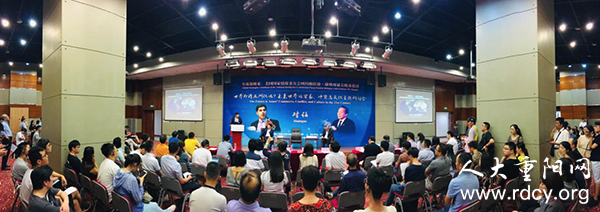
Parag Khanna delivered a keynote speech firstly. He said that Asia in history embraces a diversified and bright civilization, and with the connection of the ancient Silk Road, the exchange of civilizations lasted for centuries and had an important impact on the West and the world. In the multi-party economic and political cooperation, modern Asia is speeding up its integration and forming a brand-new geopolitical force. Especially with the proposal of the "Belt and Road Initiative", the process of Asian integration has been further deepened. Asia has a vast territory, numerous nationalities, diverse cultures and diverse economic forms. Although there have been frequent disputes in the past, this diversity is also the basis for promoting international cooperation and solving global issues today.
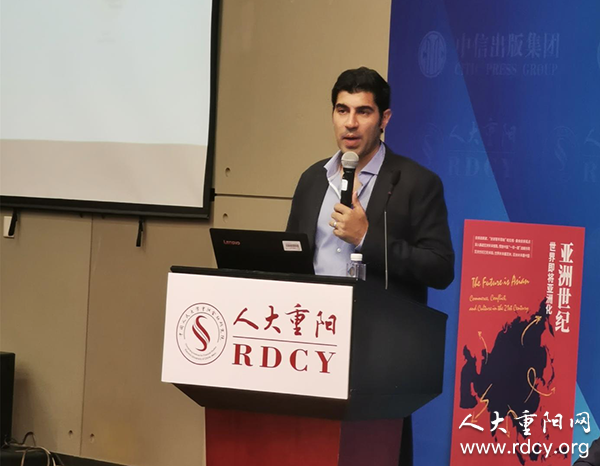
Asia is not only the factory of the world, but also the most important exporter of energy and raw materials as well as the largest consumer market in the world. Chinese, Japanese, Koreans, Singaporeans and Indians invest widely in the world and their enterprises continue to expand their territory in the global market. They are not only the pillar of the world economy, but also an important boost to the development of late-developing countries.
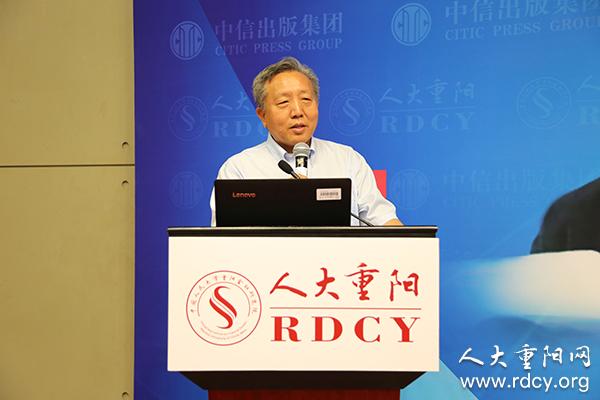
Professor Wu Xiaoqiu noted that the world center of the 21st century is moving to Asia. From the rise of Japan in the 1980s to the economic development of the "four Little Dragons" , a trend has appeared that the world economic center moved to Asia. In the world stage, the power of Asia is increasing by a large margin, and the voice of Asian countries is increasing.
Professor Wu said that if Asia is to play a more important role in the world economy in the future, the following points are very important. First, Asian countries should adhere to the strategy of learning from each other and inclusive development. Second, all progress comes from innovation, and institutional innovation, legal innovation, and technological innovation should be carried out. Third, to pay more attention to the improvement of education and the quality of the labor force. Fourth, to build rock-solid spirits of the rule of law and contract. Fifth, to emphasize the refinement of culture and values.
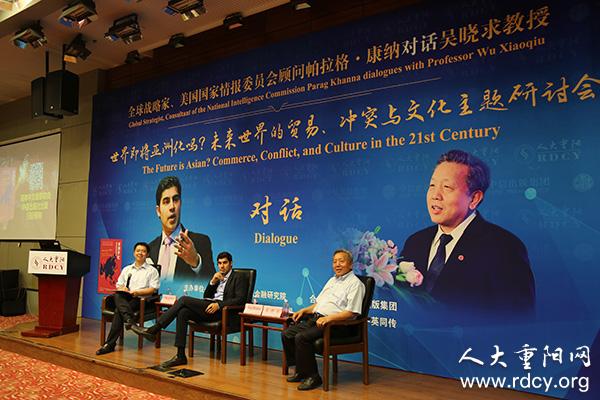
Liu Zhiqin said that Asia is the supplier of raw material and labor, the world's factories and markets. Asia's rapid development has always been inseparable from the stability of China. Zhou Rong said that the process of Asianization is globalization. Asia not only has its own culture, but also is influenced by European culture. Diversified Asian culture is conducive to the development of the whole world. Professor Wang Yiwei stressed that we have not yet reached a complete consensus on the concept of Asia, and that Asians do not yet share the same values and strong sense of identity. At the same time, Asia is the most inclusive in the world, with a variety of civilizations and languages and the rise of Asia is an inclusive rise.
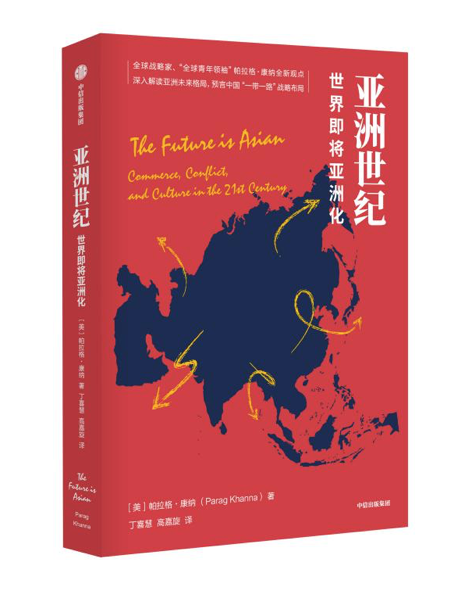
The scholars agreed that Asia and Asians are reshaping the world in their own way, and Western countries will have to take into account the historical and practical values of Asia and give a new understanding of Asia. This is also the core of Parag Khanna's latest masterpiece, "The Future is Asian? Commerce, Conflict, and Culture in the 21st Century", which was published by Citic Publishing Group in June 2019.
More than 300 audiences and media representatives attended the seminar and had a interaction with the experts in attendance. The event ended in a warm atmosphere.























































































 京公网安备 11010802037854号
京公网安备 11010802037854号





